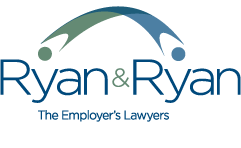In Southwest Appraisal Group v. Administrator, Unemployment Compensation Act, the Connecticut Supreme Court resolved an important question bearing on the so-called ABC test, which is used to evaluate whether an individual is an independent contractor or an employee.
Specifically, the Court held that an individual who works in connection with only one company can still be considered an independent contractor. However, the Court noted that it will continue to use the ABC test in assessing the putative employer-employee relationship.
As noted by the Court, the ABC factors include: (1) the existence of state licensure or specialized skills; (2) whether the putative employee holds himself or herself out as an independent business through the existence of business cards, printed invoices, or advertising; (3) the existence of a place of business separate from that of the putative employer; (4) the putative employee’s capital investment in the independent business, such as vehicles and equipment; (5) whether the putative employee manages risk by handling his or her own liability insurance; (6) whether services are performed under the individual’s own name as opposed to the putative employer; (7) whether the putative employee employs or subcontracts others; (8) whether the putative employee has a saleable business or going concern with the existence of an established clientele; (9) whether the individual performs services for more than one entity; and (10) whether the performance of services affects the goodwill of the putative employee rather than the employer.
